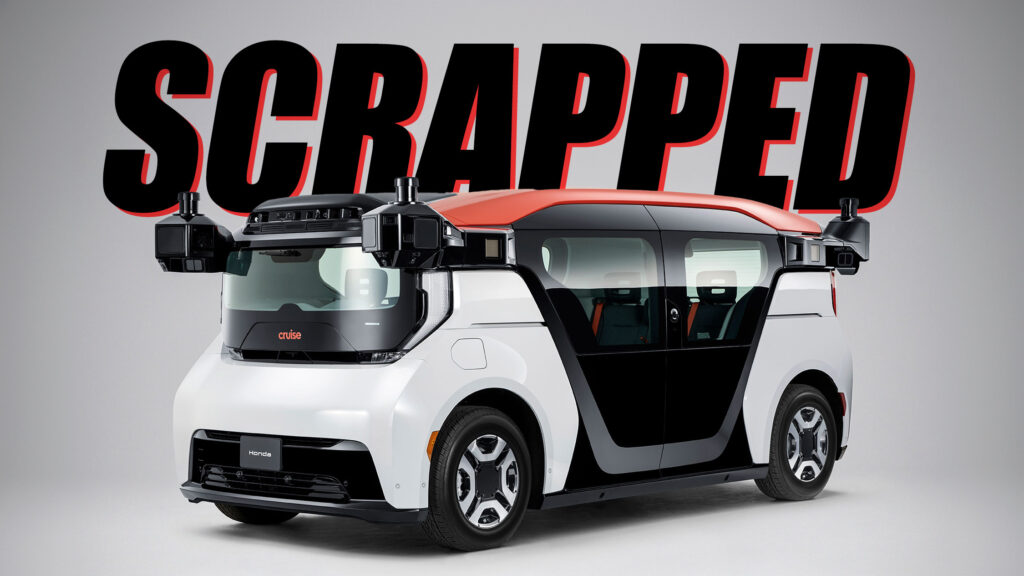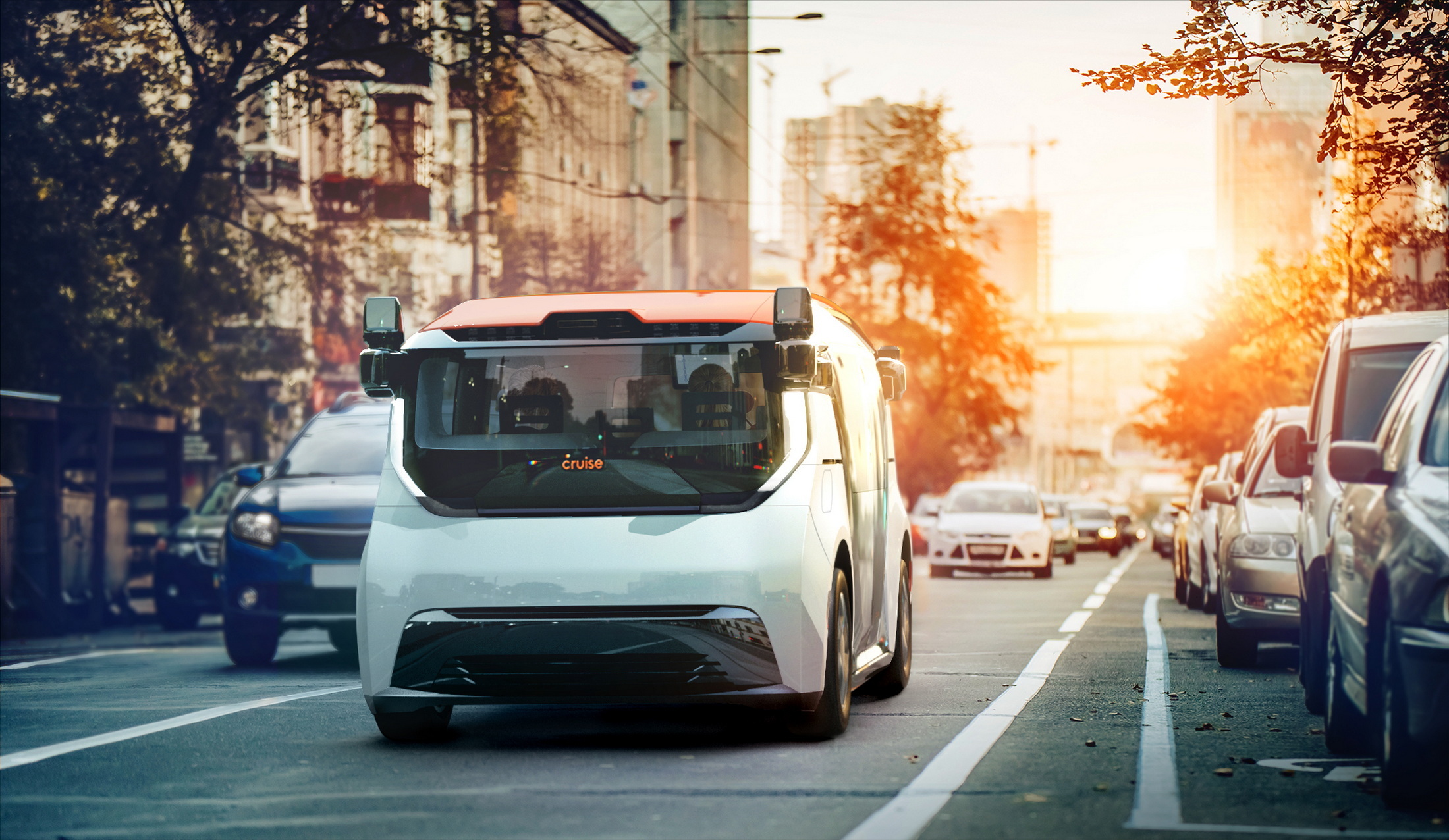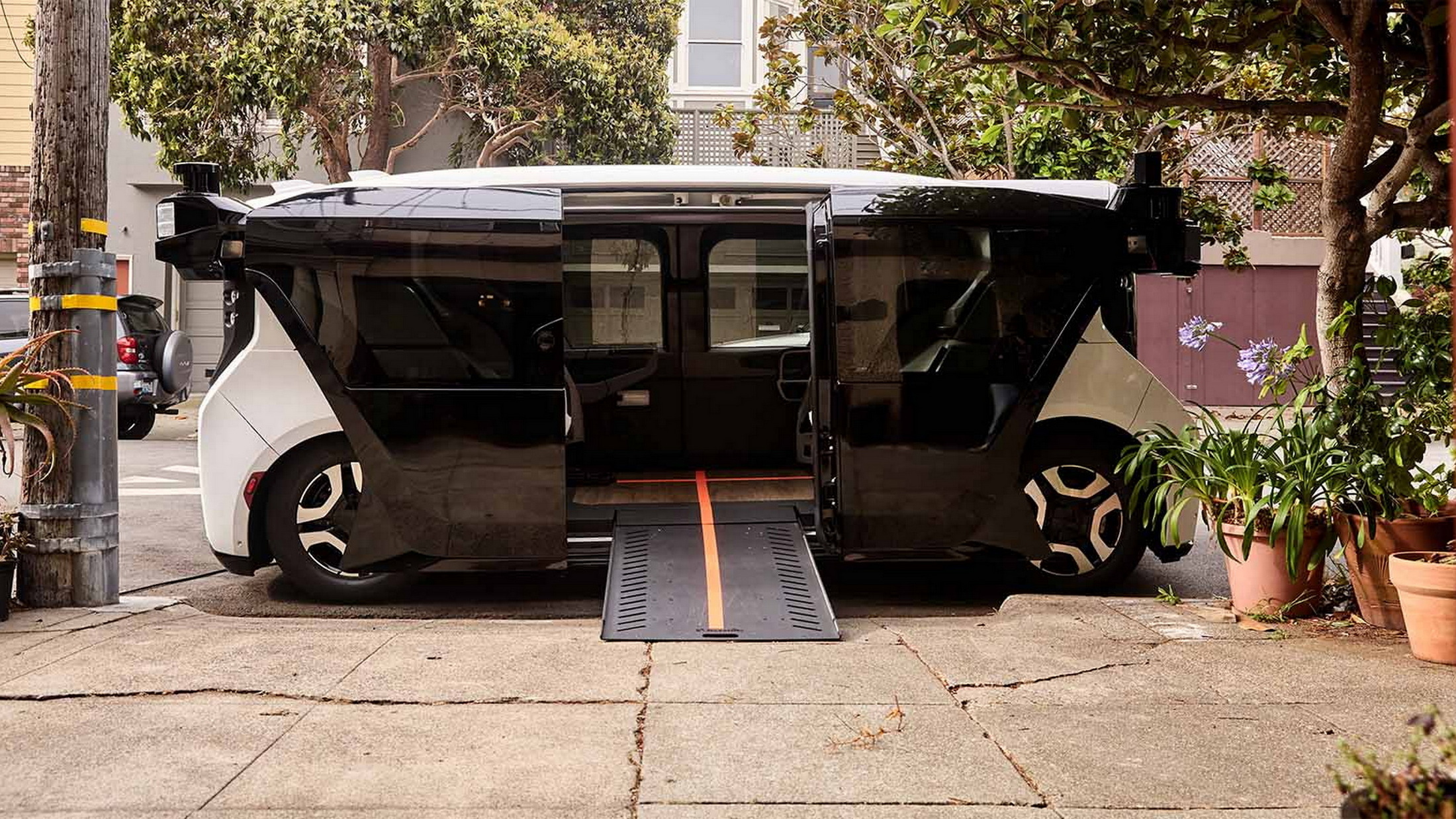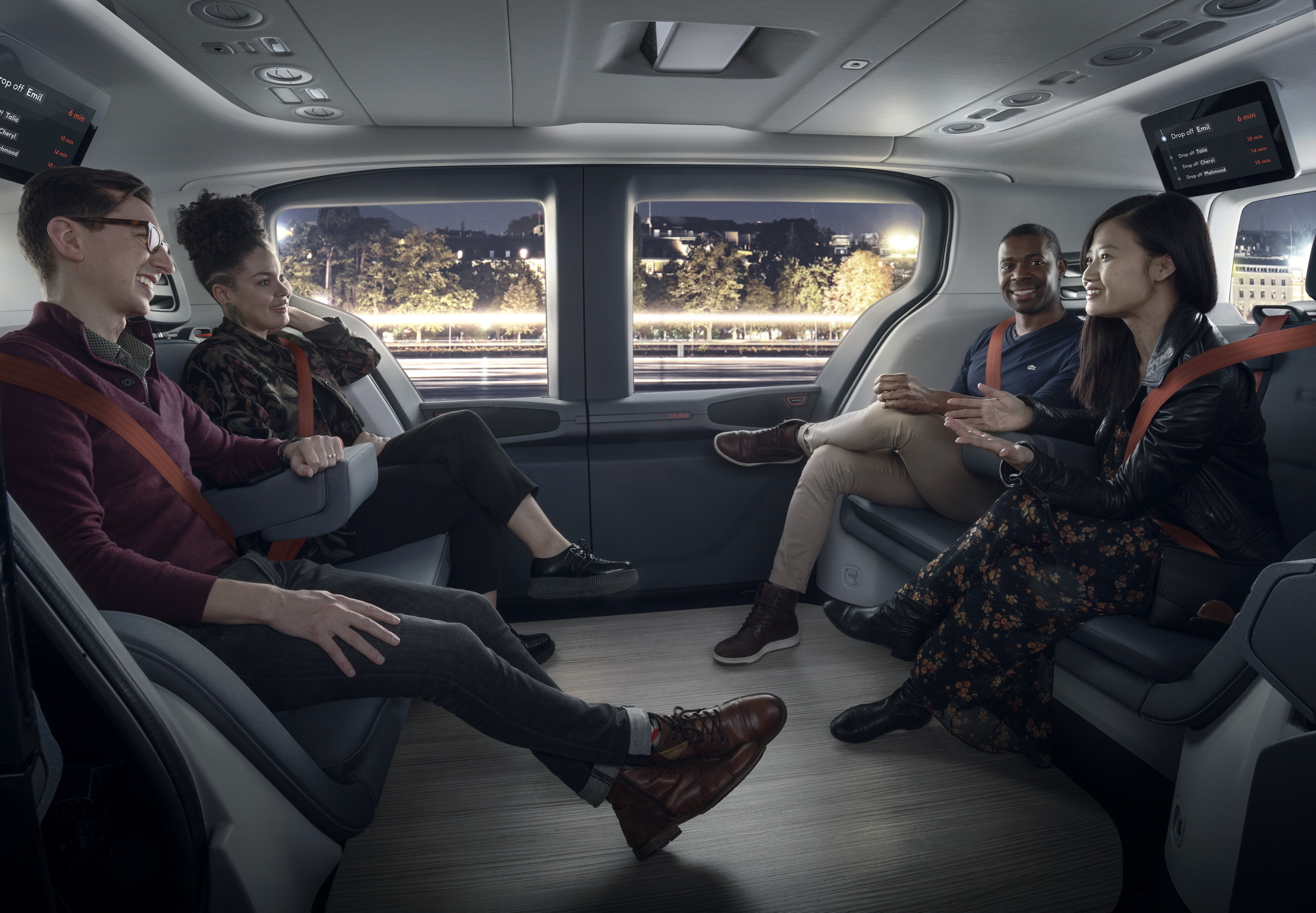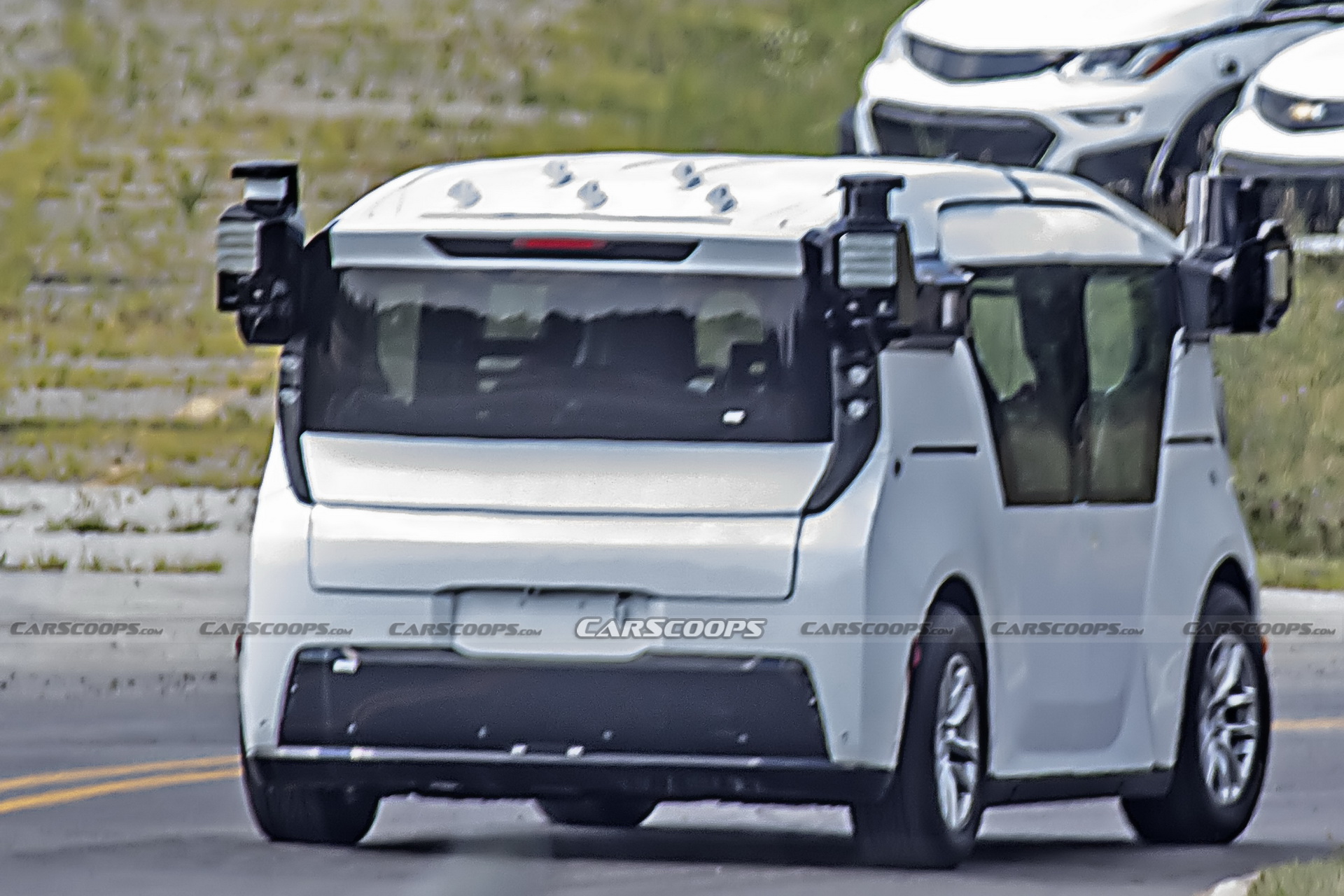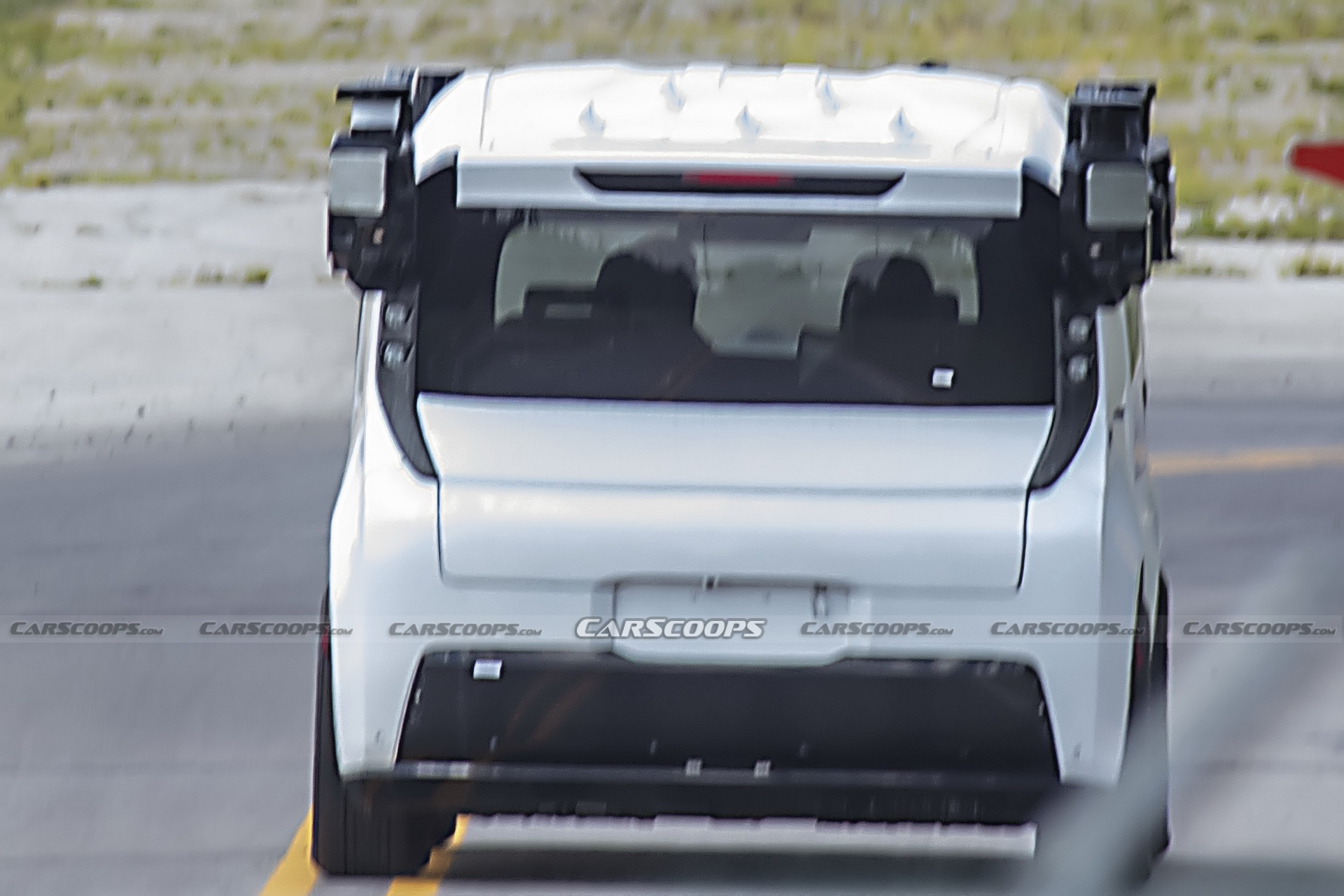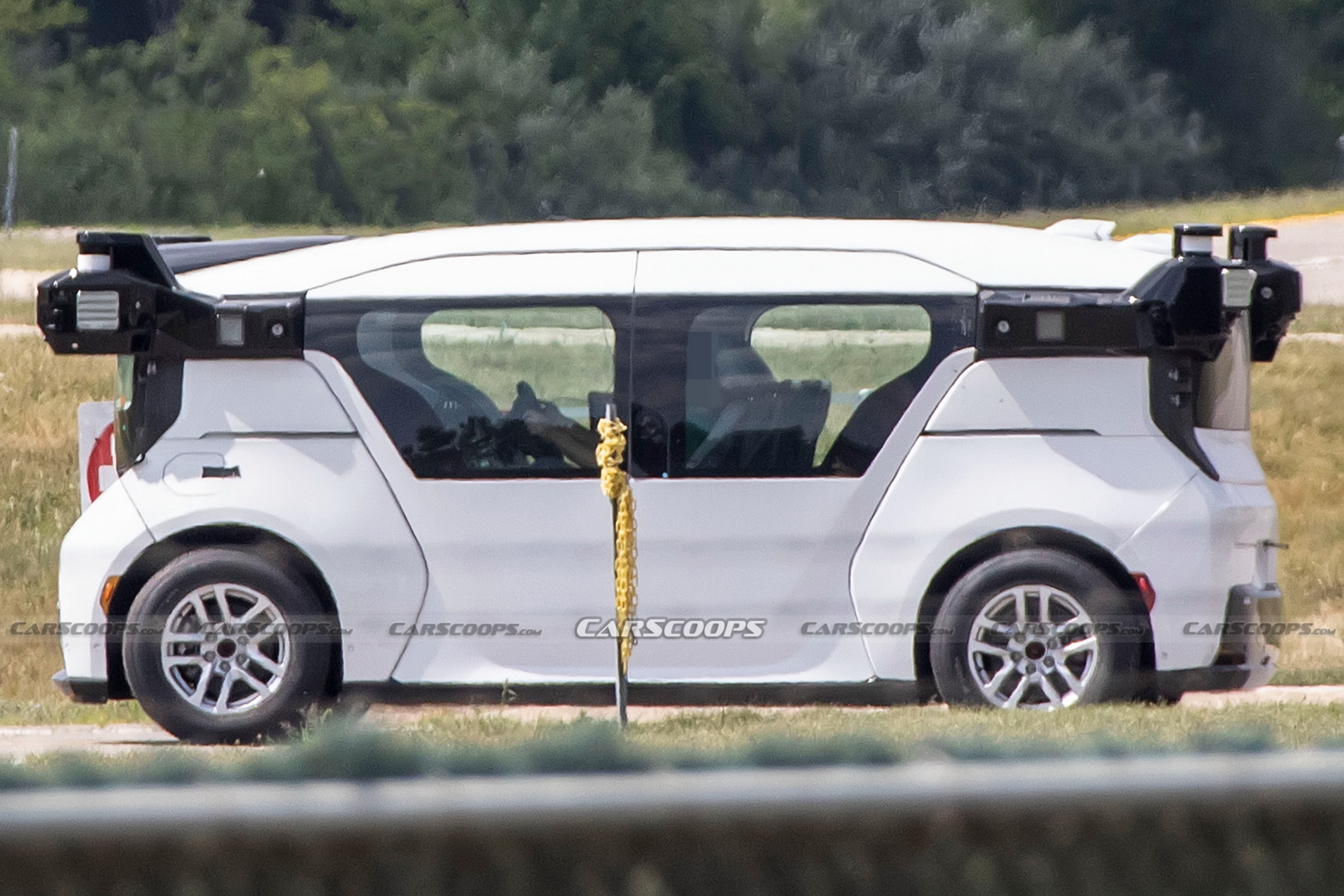- GM’s Cruise division has abandoned its Origin robotaxi project.
- GM CEO Mary Barra said “regulatory uncertainty” led to axing of autonomous cab with no steering wheel.
- Cruise has shifted focus to creating autonomous versions of the next-generation Chevy Bolt.
Cruise, the GM autonomous car division that hit the headlines last year when its license was suspended following an collision with a pedestrian, has scrapped its high-profile Origin robotaxi project.
Unlike Cruise’s current lineup of self-driving cabs, which are modified Chevy Bolts, Origin was a purpose-built box-shaped robotaxi with no steering wheels or pedals, and front and rear seats that face each other. GM CEO Mary Barra said the “regulatory uncertainty” over that design was central to its decision to cancel it.
Related: Cruise Returning To The Streets Of Phoenix With Human Drivers
Cruise will instead focus on making autonomous versions of the next-generation Chevrolet Bolt due out in 2025.
“The Cruise team will also simplify their path to scale by focusing their next autonomous vehicle on the next-generation Chevrolet Bolt, instead of the Origin,” Barra wrote in a letter to shareholders.
“This addresses the regulatory uncertainty we faced with the Origin because of its unique design. In addition, per-unit costs will be much lower, which will help Cruise optimize its resources.”
Cruise’s cabs had already hit the headlines for getting stranded in fog and smashing into buses before the accident that brought everything crashing down last fall. A woman was struck, then dragged by one of the robotaxis in San Francisco, after which California’s DMV revoked the company’s right to test autonomous vehicles in the state.
Cruise paused operations nationally and paused the Origin project at the same time, but has since returned to the streets in Phoenix, Dallas and Houston. The cabs are currently only operating under the supervision of human drivers and are not carrying paying passengers. GM hopes to resume driverless operations once it has carried out more tests and won back the trust of regulators.
Cruise co-founder Kyle Vogt, who resigned as CEO in November after criticism of his handling of the October accident, said GM was wrong to cancel the project.
“Disappointed to see GM kill the Origin,” Vogt wrote on X. “Would have been amazing for cities. GM repeatedly finds themselves with a 5-10 year head start, but then fumbles the ball, shuts things down, and loses the lead. Anyone remember the EV1? It’s like someone keeps letting them look into a crystal ball and then they just go, “nah, we’re good.”
Disappointed to see GM kill the Origin. Would have been amazing for cities.
— Kyle Vogt (@kvogt) July 23, 2024
GM repeatedly finds themselves with a 5-10 year head start, but then fumbles the ball, shuts things down, and loses the lead. Anyone remember the EV1?
It’s like someone keeps letting them look into a… pic.twitter.com/GDlL4KQk4S
Elon Musk, boss of Tesla, which has delayed the launch of its own robotaxi, suggested GM wasn’t being honest about the reasons for parking Origin.
“Well, obviously, the real reason that they canceled it is because GM can’t make it work, not because of regulators,” Benzinga reports Musk telling investors on an earnings call. “That’s misleading of them to do so, because Waymo is doing just fine in those markets. So it’s just that their technology is not at par.”




